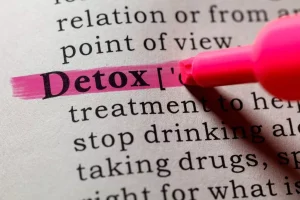
They can also provide insight into how divorcing an alcoholic spouse will affect any proceedings as well as providing legal advice on what steps should be taken next. When divorcing an alcoholic spouse, it is particularly important to take into account the long-term effects of their heavy drinking on the couple’s finances. Depending on factors such as the amount of time spent drinking and how much money was spent supporting this habit, there may be significant losses in marital assets due to their substance abuse. It is important for both spouses to consider all aspects of their individual financial situation before agreeing to a property division agreement. Planning for separation or divorce when divorcing an alcoholic spouse requires careful consideration of many factors including legal rights, financial security, and emotional wellbeing of everyone involved. It is important to find professional help so that you can make informed decisions throughout this difficult process.
Children’s Best Interest is Paramount

When divorcing an alcoholic spouse, it is important to assess the risk for abuse. This includes identifying any police reports that indicate physical or verbal violence, as well as continual emotional abuse. Additionally, one should consider the influence of alcohol in the home environment and whether there is evidence of alcoholism affecting their partner’s behavior.
- By assessing your emotional well-being, you can recognize areas that may require additional attention and support.
- How do you determine whether your spouse is drinking alcoholically and increasing your chances for divorce?
- Depending on your situation, you may need assistance from experienced family law attorneys who understand the complexities involved when divorcing an alcoholic spouse.
How Can I Protect My Children During A Divorce When My Spouse Is An Alcoholic?
For specific legal questions you should contact us for a free consultation. Securing a divorce decree is supposed to be the final chapter in a difficult process, ushering in a new era of clarity and closure. But what happens when that final chapter is marred by unexpected plot twists? The information contained in this post is provided for general information purposes only and does not constitute legal advice as every case is unique. The information provided herein is simply our way of introducing you to Torrone Law.
Alcoholism and Divorce – Tips, Laws, Statistics, and Resources

It’s important to consult with a legal professional in the specific state to understand how alcoholism is treated in the context of fault-based divorce. Laws and interpretations can vary significantly across different jurisdictions. Divorce is a life-altering event, and navigating the legal and financial complexities can feel overwhelming.
It’s important to remember that you’re not alone, and that there are resources available to help you through this difficult time. Support groups and therapy can provide a safe space to share your experiences, gain insight from others who have gone through similar situations, and receive emotional support. By taking steps to manage joint bank accounts and credit cards during a divorce, you can protect your financial assets and ensure that you’re not held responsible for any debts or charges incurred by your alcoholic spouse.
The trauma inflicted on the children who witness alcohol-related conduct can have lifelong effects. Testimony describing what life is like behind closed doors with a person abusing alcohol is powerfully persuasive as part of a blended presentation. Family Courts are keenly aware of the impact alcohol misuse has on children. Whether a party struggling with alcohol misuse gets limited custody of their children or none at all will depend on the Court’s belief about their commitment to remaining sober. Custody cases in which there are allegations of one parent’s alcohol abuse are of great concern to a Family Court Judge.
Addressing Safety Concerns

Also, if safe and feasible, keep lines of communication open with your spouse. An amicable relationship between divorcing parents can significantly benefit the children. Mediation, on the other hand, involves a neutral third-party mediator who facilitates discussions between divorce rates after sobriety the spouses.

Comentários